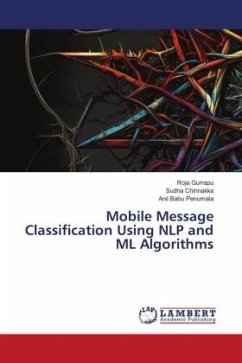
Next Generation Wireless and Mobile Systems
Handoff Related Issues
Versandkostenfrei!
Versandfertig in 6-10 Tagen
47,99 €
inkl. MwSt.

PAYBACK Punkte
24 °P sammeln!
Handoff is a process of transferring a mobile station (MS) from one base station (BS) or channel to another. The channel change due to handoff may be through a time slot, frequency band, codeword, or combination of these for time-division multiple access (TDMA), frequency-division multiple access (FDMA), code-division multiple access (CDMA) or a hybrid scheme, respectively. This book includes five major discussions.We review handoff schemes and explore their utility and the downside qualitatively. Here we comprise various techniques to reduce handoff delays.We use the signal to interference th...
Handoff is a process of transferring a mobile station (MS) from one base station (BS) or channel to another. The channel change due to handoff may be through a time slot, frequency band, codeword, or combination of these for time-division multiple access (TDMA), frequency-division multiple access (FDMA), code-division multiple access (CDMA) or a hybrid scheme, respectively. This book includes five major discussions.We review handoff schemes and explore their utility and the downside qualitatively. Here we comprise various techniques to reduce handoff delays.We use the signal to interference threshold value between current base station system (OBS) and its neighboring base stations (NBS) preceded by checking the availability of free channels. We also evaluate a method for appropriate base station and represented it as appropriate base station identification Protocol (ABSIP). Reducing the bandwidth of guard band between two-channel, which reduced the same amount of bandwidth from the guard band is added to the effective useful band.This book also presents the increment of the bit fields of Simulation Identity Modulation(SIM).












